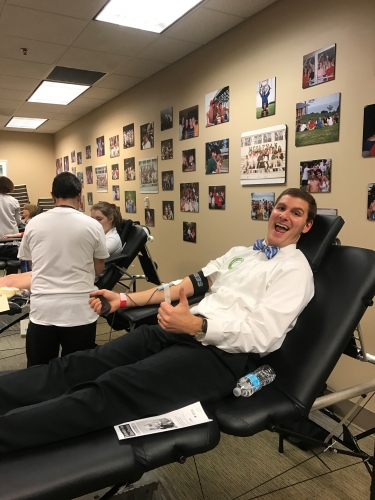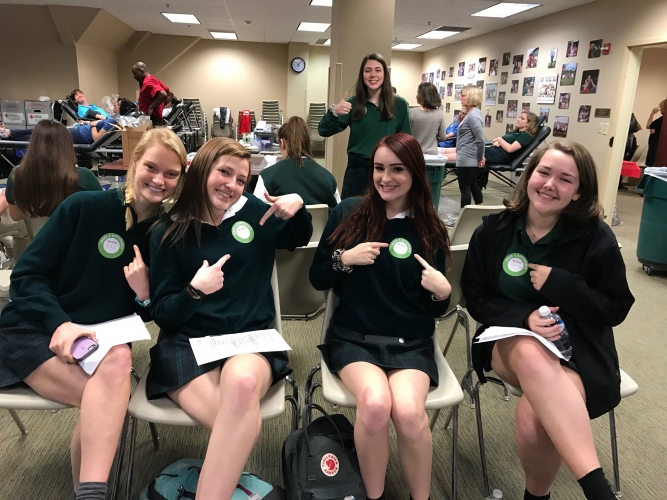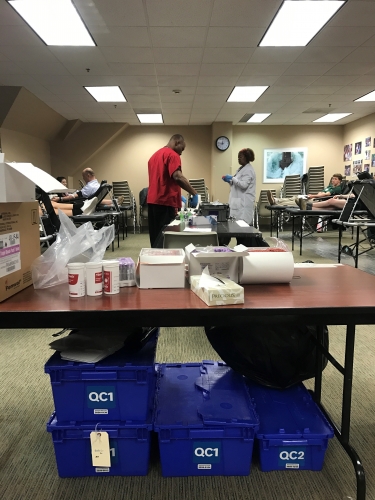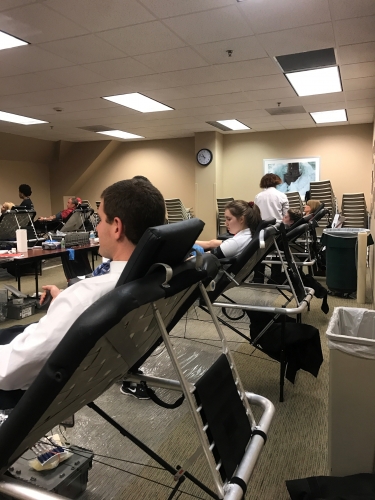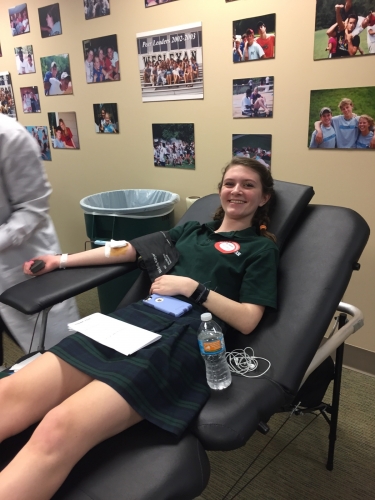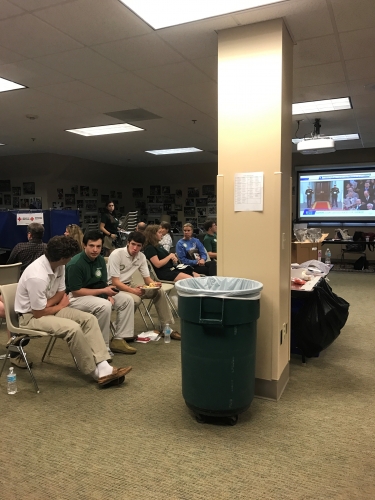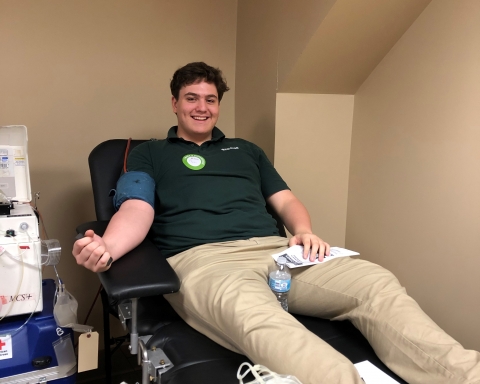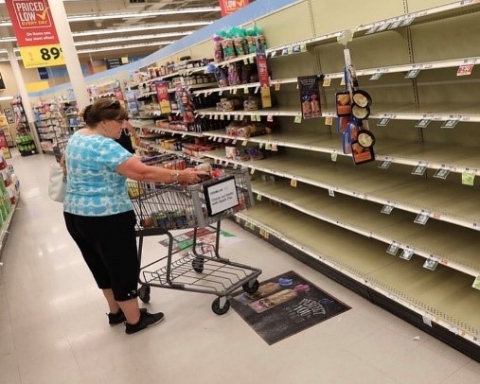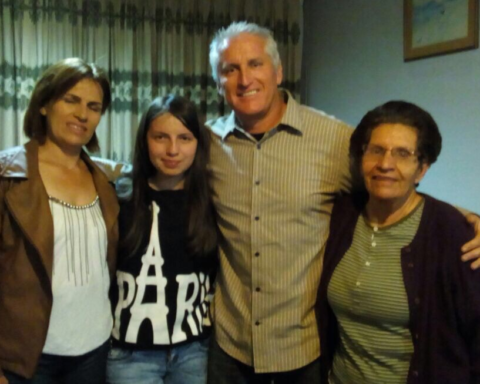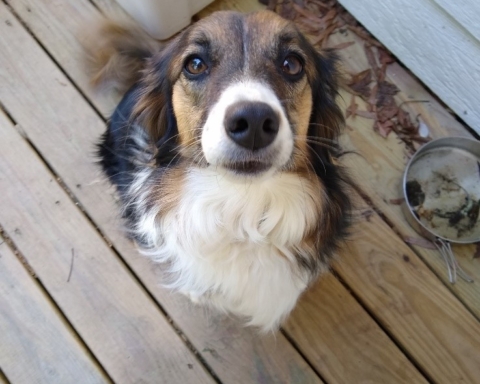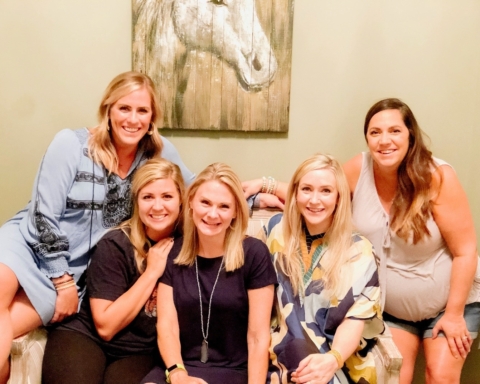According to the American Red Cross, someone in the United States needs blood every two seconds.
Wesleyan is doing its part to contribute to the available blood supply on Jan. 20 by inviting the American Red Cross to host a blood drive.
All students who are sixteen, with parent consent, and older, faculty and parents within the donor restrictions are welcome, needed and encouraged to donate. The requirements include having a minimum proportional height and weight, having no health concerns and not having traveled in the last year to certain areas where threatening diseases are more common, such as Guatemala, Nicaragua, Panama, the Dominican Republic and specified parts of Florida.
Around thirty eight percent of people in the United States are eligible to donate blood at any given time, yet under a tenth of them actually donate.
Father to seventh grader Carson, Rob Ballard is donating because he recognizes that “medical and pharmaceutical industries cannot create or manufacture blood like it does medicine… [and] there simply is not enough blood in hospitals to cover the need.”
Eighty percent of the American Red Cross’ donations are collected at these traveling blood drives organized at high schools, colleges, companies, community organizations, places of worship and military installations.
Despite the obvious need for donations, many people are still reserved about donating. School nurse Marty McQuaig said, “I know it’s a little scary the first time you donate blood, but if you’re within the… limits and have no health concerns, it’s a great way to give back to your community or give back to someone in need.”
Wesleyan mother to Peter and Nicholas, Preeti Hess said, “If you’ve been blessed with good health, why not help someone in need?”
While a reason to donate can be as simple as that, seventh grade boys grade chair Dean Jackson also understands that donating is a necessary act of service and is obeying God’s commands in Galatians 5:13 to “serve one another humbly in love.”
“You may never know how you helped, but that should never be the point. It is, very simply, a way to serve,” said Jackson.
Donated blood is distributed to hospitals to use during surgical operations, on soldiers, people in natural disasters and car crashes, people with diseases that require blood transfusions and a number of other instances.
Donated blood is separated into its three components, red blood cells, plasma and platelets; so by donating one pint, you can help three different people.
Type O negative donors are the most versatile because their blood can be used in any blood type transfusion; they are called “universal donors.” Type O negative blood it in great demand, and often in short supply. Wesleyan mother to Watson, Wyatt and Anna Rae, Darcy Copeland and Wesleyan mother to Kelsey and Lindsay, Megan Rappe are included in the seven percent of people who are universal donors, so they both decided to donate this year.
Rappe also said everyone should donate because “it’s such a small sacrifice for us but can be a matter of life or death for someone who needs it.”
An average adult has ten pints of blood, and donors only give one when donating. High school Spanish teacher Guillermo Vallejo recognizes that donating is “helping people and serving in a very easy but powerful way.”
“You won’t know if you, any relative, or friend will need to get blood one day,” said Vallejo.
Middle school principal Joseph Antonio has been donating blood for years. Antonio said, “The first time I gave blood, the American Red Cross sent me a note saying, ‘You helped [save] three people’s lives.’ That’s all it took for me to continue donating blood each year.”
Donating is safe, necessary and giving only takes about ten minutes.
“Like Wesleyan, my high school had an annual blood drive. I started donating at a young age, and it has become a lifelong habit,” said Chris Cavanaugh, Wesleyan mother to Kathryn and Riley.
Cavanaugh also said her husband lost a lot of blood during some complications in a routine surgery, and “the donated blood he received was life-saving.”
Donors and those who attempted to donate received an excused absence from class while donating, a Jeans Day the following school day and the satisfaction of knowing they have changed the life of a stranger for the better.
If you decide to donate next year, make sure you are well rested, drink lots of water before donating, eat a good meal and bring photo identification.
By donating one pint and a few minutes of your time, you could be someone’s difference between life and death.

